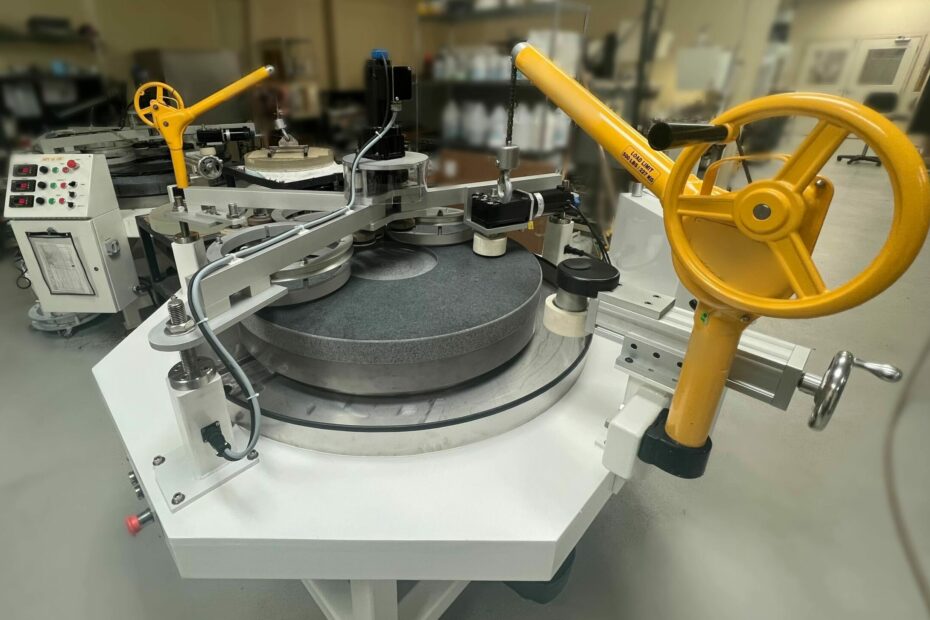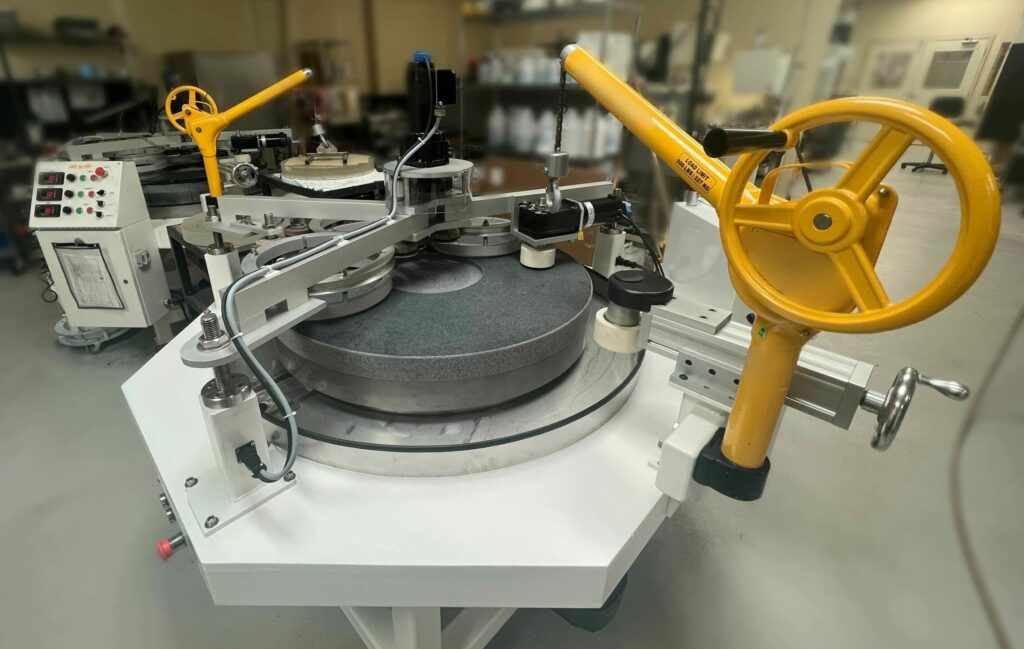Achieving High-Throughput, Low Surface Roughness & Improved Scatter
PFG Precision Optics has created a proprietary high-throughput process to polish plano Calcium Fluoride (CaF2) optics with low surface roughness for low scatter, especially at short wavelengths. Our President of Engineering, Courtney Green, drove efforts to develop the polishing process, and designed and built two of our own hybrid continuous polishers (CPs) comprised of features best designed for crystalline materials.
The result is a throughput increase 4X that of our previous methods, and the ability to achieve exceptional flatness, cosmetics, and surface roughness.
Why Calcium Fluoride Optics (CaF2)?
CaF2 is used in a wide range of optical applications as it has a wide transmission range from 130nm to 10µm. It also has low axial and radial-stress birefringence, high refractive-index homogeneity, low degradation from moisture, and low solubility. All of these qualities make CaF2 a good choice for a variety of UV, visible, and IR applications. CaF2 optics are commonly found in thermal imaging systems, spectroscopy, telescopes, and excimer lasers.
CaF2 Specific Polishing Process
Our propriety process for polishing CaF2 allows our opticians to maintain flatness and surface quality throughout fabrication. We mix a specially developed polish that prevents chemical imbalance. The polishing lap we pour is also a unique recipe for pitch that generates the perfect hardness ratio to yield the best results for surface roughness. Taken together, these improvements avoid common pitfalls with crystalline materials polishing.
CaF2 is a very soft glass type (Knoop hardness of 139-152), which means simply wiping it incorrectly during cleaning can cause it to scratch. To prevent this from happening, we have developed a particular process for cleaning CaF2 that avoids cosmetic issues. This same cleaning process is also utilized before applying any thin film coatings to CaF2 optics.
This material’s properties also make inspection difficult. Inspecting for features like center thickness (CT), wedge, and surface figures can result in scratches. Because of this, we have made modifications to metrology and blocking procedures that allow us to check parts without causing defects.
Custom Built Continuous Polishers
As we developed our polishing process, we found no commercially available equipment that would meet our needs. In order to achieve our quality goals, we had to develop our own machinery. Our team leveraged years of experience and critically selected elements that are most advantageous to crystalline polishing processes. With this in mind, PFG designed and built in-house two 36” custom continuous polishers (CPs) (see Figure 1).
Some of these elements include (1) a specific frame that allows for floating carriers that do not touch the lap, (2) a custom precision granite table on a specially fabricated drive plate, and (3) a turn table bearing that provides precision stability. The framework was built to minimize corrosion and prevent transmission to the lap.
Results – Why this Matters
PFG’s combined efforts to develop a propriety polishing process and build two custom CPs have allowed us to become leaders in plano CaF2 optics. We are able to exceed flatness specs of ¼ fringe PV, 10-5 scratch-dig or better, surface roughness <3 angstroms, and produce 4X higher yields.
These improvements allow us to provide consistent, high-quality results and the ability to deliver higher volume production yields in less than a quarter of the time
If you are interested in using CaF2 for your project, product, or program contact us to learn more:
(228) 875-0165 x 210

